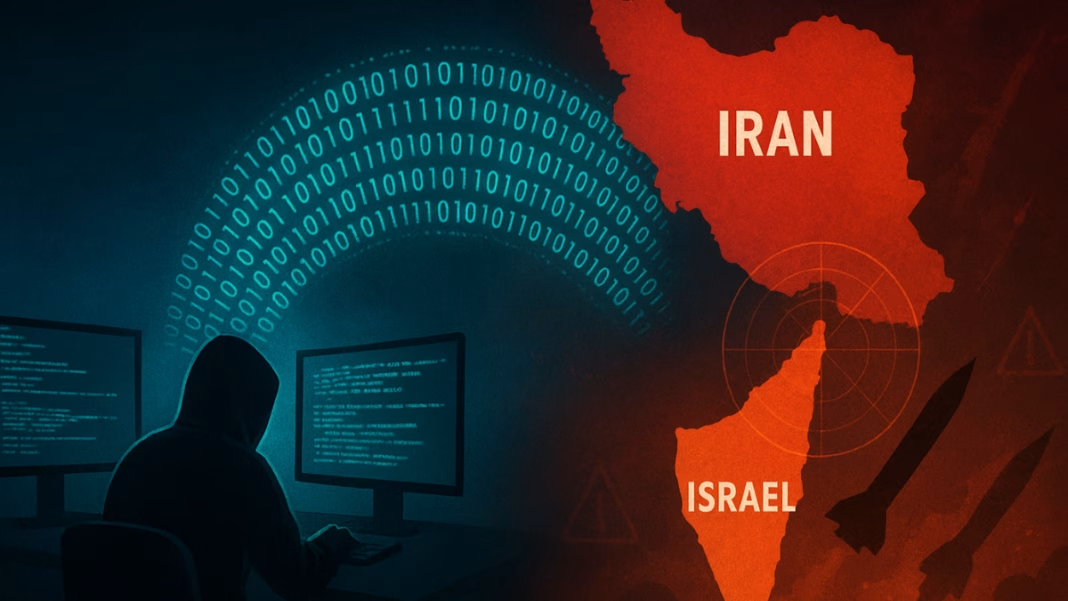The guns may have fallen silent between Iran and Israel, but their war has not truly ended. Instead, the battlefield has moved online. A decade-long cyber conflict between the two nations has intensified in recent months, despite a ceasefire on the ground.
During and after the 12-day war in June, cyberattacks surged. Both sides have been accused of carrying out hacks, data breaches, and digital sabotage. Officials confirm that even though no physical fighting is happening, the cyber war is still active and aggressive.
Ceasefire in Reality, But Digital Attacks Never Stopped
In the real world, a fragile ceasefire remains in place. But in cyberspace, there are no pauses. Attacks from both sides continue without interruption.
Soon after the June fighting began, Israeli officials reported receiving suspicious text messages. These messages contained dangerous links meant to steal information. At the same time, Iranian officials said their country faced more than 20,000 cyberattacks during the 12-day war.
One of the most damaging attacks targeted Iran’s air defense systems on June 13. This happened just as Israeli jets launched an air strike on Tehran. The attack was described as highly tactical and aimed at giving Israel a strategic edge. Experts say it also helped gather critical intelligence on Iranian military leaders and nuclear scientists.
Iranian-linked hackers have also stayed active. They have used weaknesses in popular software to try and break into Israeli systems. Many of these attacks focus on stealing data, spreading false messages, or disrupting important services.
Major Cyber Hits on Banks, Crypto Exchanges, and Companies
Both sides have been accused of targeting financial and business systems. One hacking group linked to Israel reportedly stole around $90 million from an Iranian cryptocurrency exchange. The stolen funds were moved to a digital wallet that had no private access keys, making it impossible for the exchange to recover the money.
The same group also attacked two major Iranian banks. These included a state-affiliated bank. The hackers disabled the banks’ main systems, backups, and even their disaster recovery networks. A software provider for the banks confirmed the damage.
Belarusian hackers destroy Aeroflot servers, steal 22 terabytes of data in targeted cyber operation
On the Iranian side, hackers carried out attacks on around 50 Israeli companies. These companies were in fields like logistics, technology, and human resources. Stolen data included the resumes of thousands of Israeli citizens who had links to the defense sector.
Some cyberattacks used fake emergency alerts. Hackers sent messages that looked like they were from Israel’s Home Front Command. These messages told people to stay away from bomb shelters. In other attacks, hackers tried to break into security camera systems.
They wanted to see where rockets were hitting.
How the Cyber War Is Changing the Conflict
The cyber conflict has shown that wars no longer need to be fought only with weapons and soldiers. Hackers can cause serious damage without firing a single shot.
In Iran, cyberattacks have led to major disruptions. The loss of key data, stolen money, and attacks on critical infrastructure have forced officials to call for urgent improvements in their defenses. One weakness is Iran’s centralised data system. This means that when hackers break in, they can access a large amount of sensitive information at once.
Cyberattack Catastrophe: How Hackers Can Endanger Human Lives ?
In Israel, cyberattacks have been disruptive but less damaging. Officials say none of the Iranian-linked attacks have caused long-term harm. However, the constant attempts to hack systems, steal data, and spread misinformation show that the cyber war is far from over.
Both countries have been engaged in a shadow conflict for decades. Cyber warfare has now become one of the main tools in this ongoing struggle. Even with physical ceasefires, the digital battlefield remains active — and both sides seem prepared to keep fighting in the virtual world.





